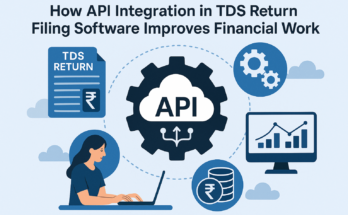In the fast-paced world of sales, the right tools can be the linchpin for success. Account planning software equips sales teams with the insights and organization necessary to cultivate client relationships and maximize sales opportunities. The value of such tools is immeasurable, but with many options on the market, it can be a challenge to choose the perfect fit for your business needs. Selecting software that incorporates essential features tailored to enhance your strategic approaches can lead to significant improvements in sales outcomes. Below, we will explore the pivotal features you should consider when selecting account planning software.
Essential Features of Account Planning Software to Elevate Your Business Strategy
Account planning software simplifies customer relationship management by providing a clear view of customer profiles, including past interactions, current activities, and future potential. This helps sales teams create strategic plans, set measurable goals, and track progress to ensure focused and effective engagement.
The best platforms also offer forecasting and scenario planning, allowing sales teams to anticipate market shifts and adjust strategies proactively. A seamless and user-friendly experience, especially with mobile accessibility, ensures that sales professionals can easily update and retrieve critical information anytime, anywhere.
Customization Capabilities for Tailored Account Planning Processes
Account planning software should be customized to fit specific sales methodologies and processes, ensuring productivity and user adoption. High-quality software should adapt to evolving business needs without requiring a complete system overhaul. Custom templates for account plans and reports can streamline the planning process by pre-populated with relevant data for each client or opportunity, saving time and reducing manual entry.
Personalizing communication and sales collateral through the software can enhance the customer experience by providing tailored proposals and presentations that resonate with the client’s specific needs and challenges. This high level of attentiveness and attention to detail can lead to successful deals.
Integration with CRM and Other Sales Tools to Streamline Workflow
Account planning software that integrates with CRM systems and other sales tools improves efficiency and data integrity in the digital world. Centralizing client-related data reduces data silos and allows a unified approach to account planning and management. Real-time syncing reduces miscommunication and missed opportunities.
Compatibility with marketing automation, email platforms, and social media enhances software functionality, capturing client interactions and touchpoints. This helps sales teams inform personalized engagement strategies and streamline communication efforts. It is crucial to ensure the software aligns with existing IT infrastructure and compliance standards to reduce challenges associated with implementing new systems and safeguard the integrity of the business’s data ecosystem.
Advanced Analytics and Reporting Functions for Strategic Insights
Data-driven decision-making is crucial in sales and account management. High-quality account planning software should offer advanced analytics and customizable reporting functions to provide strategic insights for sales teams. These capabilities help identify trends, measure performance against objectives, and identify areas for improvement. Real-time reports enable agile responses to changes in account status or market conditions, capitalizing on opportunities or mitigating risks.
Advanced filtering and segmentation options allow for granular analysis. Predictive analytics can forecast future patterns based on past performance and current data, adjusting sales strategies and resource allocation to align with market developments. Effective reporting enhances accountability within the sales team, with detailed performance dashboards motivating individuals and groups and reinforcing a culture of success.
Collaboration and Communication Tools Within Account Planning Platforms
Account planning tools should be designed for collaboration, allowing sales professionals to share insights, provide updates, and coordinate actions without having to switch between different applications. Features like document sharing, co-authoring, and commenting on account plans can bridge geographic barriers and create a more inclusive environment.
Communication tools should support seamless information sharing with clients, ensuring clear, continuous, and professional channels. Feedback and collaboration on forecasting and pipeline management can contribute to more accurate future planning, fostering a cooperative approach to sales strategy and execution. A well-designed account planning tool can foster a more cohesive team environment.
Overall, the key features of account planning software are designed to streamline sales processes, provide insightful analytics, and encourage collaborative teamwork. The right software will act not only as a repository of information but as a dynamic tool that adapts to your business’s strategies and helps unlock the full potential of your sales force. By keeping these features in mind, businesses can choose a solution that will drive forward their sales operations and support sustainable growth.




